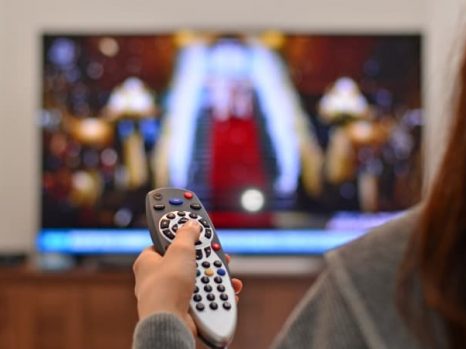Americans weren’t necessarily gambling more during the pandemic, but they reported an increase in the type of problematic behavior that could indicate potential difficulties tied to the activity, according to an extensive new survey for the National Council on Problem Gambling.
Significantly more gamblers in April 2021 than in a comparable survey in November 2018 reported that in the past year they had lied to hide the behavior, felt irritable when trying to cut back, or relied on other people to pay their debts, based on results summarized by researcher Don Feeney at the national council’s annual conference Thursday.
The online survey of 2,000 adults conducted in April updated an extensive report released by the council in March, which the advocacy group for gambling addiction counseling described at the time as one of the most comprehensive surveys of gambling behavior and attitudes ever done. The March report was based on surveys conducted more than two years earlier, prior to broad legalization across the U.S. of sports betting and increased access to online gambling.
In both survey periods, just under three of every four adults reported gambling in the past year, although there were significant increases in people betting on sports and gambling online. Surprisingly, there were not significant differences in the level of such betting in legalized states vs. those where it is still technically prohibited, according to Feeney, who has not yet written a report on the new findings but described them to US Bets in an interview.
He found particularly notable the increased reporting of various types of gambling-related difficulties during the pandemic, while stressing that is not the same as identifying people unable to control pathological gambling. The survey did not attempt to place a number on the percentage of compulsive gamblers, which has generally been estimated to be about 2% of the population. The National Council on Problem Gambling raised concern early in the pandemic that it would increase gambling-related difficulties.
“The people who said they gambled more, their problematic behavior was quite high, which is alarming,” Feeney said. “The question is what will their behavior become as the pandemic eases, and theoretically things become a little less stressful and people return to work or resume their usual social schedule, as opposed to being isolated.”
More lying, irritability, and debt
The recent online survey, which was funded by Entain and conducted by the Ipsos marketing group to turn the findings over to Feeney for analysis, asked the 71% of respondents who had gambled in the past year whether they had experienced any of the following difficulties:
Lied to hide their gambling (31% reported doing so at least once, up from 17% in November 2018)
Felt restless or irritable when trying to cut back (31%, up from 19%)
Relied on others to pay debts or bills (27%, up from 12%)
Needed to gamble more for the same feeling of excitement (31%, up from 27%)
Those percentages were those reporting such behavior at least once in the past year, which is not necessarily significant. More meaningfully, those who reported such problems “many times” were 7% for those who felt irritable; 6% among both those who lied and those who relied on others for financial help; and 3% among those who needed more gambling to attain the same excitement.
While only 18% of people reported gambling more during the pandemic, compared to 47% who gambled less, half of those who gambled more answered they that had experienced each of the types of problem behavior.
Those individuals were more likely to be young adults, Feeney said, consistent with other findings that those younger age groups are more likely to have gambling problems and also more likely to gamble online, which is where increases took place last year as land-based casinos and other forms of entertainment shut down.
Interestingly, there were also increased problems reported by those who gambled less compared to those whose gambling behavior did not change.
“It may have been that gambling less was stressful for them,” Feeney suggested. “They may have been gambling less because of their finances, and if their finances were affected by the pandemic, that’s stressful. They’re doing less of something they enjoyed beforehand … and maybe they felt restless or irritable when trying to cut down their gambling.”
Legal, non-legal, what’s the difference?
Feeney pointed out that while those who reported wagering on sports events in the past year increased to 26% from 20% in the prior survey, there was no meaningful difference based on whether people were in a state with legalized sports betting or without it.
“Participation in sports gambling was almost exactly the same [between legal vs. non-legal states], the sports people were betting on was the same, the numbers of people betting were the same,” Feeney said. “The size of the wagers may have been a little higher in the states where it wasn’t legal, but not significantly so. … Most significantly, the rate of negative consequences was no different in legal vs. non-legal states.”
The percentage of people who reported past-year online gambling (which could include on sports wagers) went up even more sharply, from 15% to 25%. That meshed with increases seen in fantasy sports play and even horse betting and craps and roulette play, with Feeney speculating the table games increase was from people trying it online for the first time since casinos were closed for many months. And maybe they stumbled onto a chance to bet on horses online as well.
“The people betting online found all kinds of things you could bet there — not necessarily through legal sites, but I have a feeling people don’t really understand what’s legal or not, and whether they’re using an offshore site or not,” he said. “And doing those casino games is a lot less threatening online when you’re new to it, than doing it in a casino with other people watching and you’re worried if you’re doing it wrong.”
Feeney said he will spend coming months doing further analysis of the survey findings before producing an updated report to be published by the national council.
Photo: Shutterstock
The post Survey Suggests More Problem Gambling Behavior Took Place During Pandemic appeared first on USBets.













